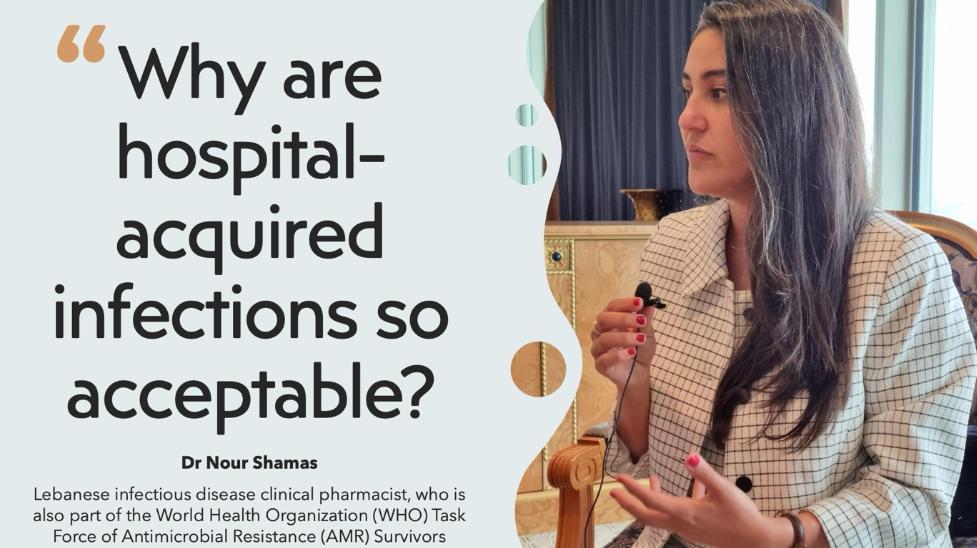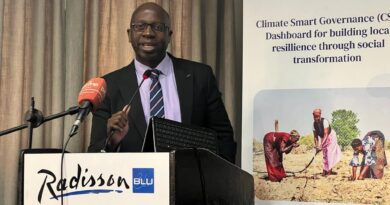Hospital-Acquired Infections Fuel Antimicrobial Resistance, Says Dr. Shamas
Dr. Nour Shamas, a Lebanese infectious disease clinical pharmacist and WHO Task Force member on Antimicrobial Resistance (AMR), highlights a global health crisis: the persistence of hospital-acquired infections (HAIs) and their role in escalating AMR.
Dr. Shamas’s message strikes close to home—her mother, now an AMR survivor, contracted a drug-resistant urinary tract infection after a hospital stay for spinal surgery in 2018. The infection, difficult to treat and persistent, was a stark reminder of healthcare vulnerabilities.
“Why are hospital-acquired infections so acceptable?” Dr. Shamas asked, pointing out how healthcare settings can, paradoxically, become places where patients risk drug-resistant infections.
Lebanon’s limited healthcare infrastructure and economic challenges exacerbate these issues, with families like Dr. Shamas’s shouldering high medical costs. “It’s challenging when even basic diagnostics aren’t readily accessible,” she noted, emphasizing how her mother’s infection worsened as healthcare providers initially failed to diagnose it correctly.
Reflecting on her experiences at the United Nations General Assembly High-Level Meeting on AMR, Dr. Shamas stressed the need to tackle AMR through a comprehensive lens that includes peace and health system strengthening. Conflict and economic hardships, especially in Lebanon, have left communities with overcrowded housing and reduced access to healthcare, compounding infection risks.
“Educate. Advocate. Act.” This is the theme of the upcoming World AMR Awareness Week (WAAW), from November 18-24, 2024, a theme Dr. Shamas echoes. Awareness and prevention are paramount, she says, calling for patient education on infection control, alongside a focus on strengthening AMR stewardship programs for healthcare providers.
Early, accessible diagnostics are essential, Dr. Shamas emphasized, urging healthcare systems to move away from generalized “empirical” treatments and to prioritize accurate, rapid testing. “We must make diagnostics accessible to prevent dependence on empirical therapy and to ensure everyone has access to effective treatment,” she said.
Dr. Shamas concludes with a call to humanize AMR. “Everyone is at risk if medicines stop working. By sharing survivor stories, we can work towards faster, more effective solutions,” she said, underscoring the universal need to tackle AMR before it becomes an irreversible health crisis.



